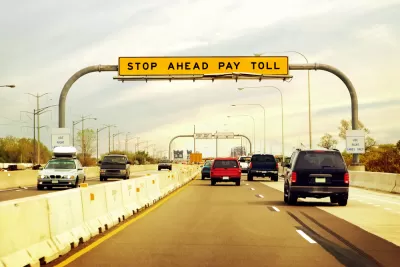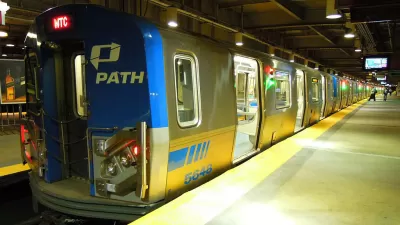A Reuters' poll on a national infrastructure investment program shows some support for a plan similar to one suggested, though not detailed, by Elaine Chao, President Trump's nominee for transportation secretary.

American were evenly split in opposing new taxes and support of hiking user fees and tolls, while 56 percent did not want debt financing.
"The findings highlight a major challenge for a 10-year, $1 trillion infrastructure program incoming President Donald Trump has promised: Everyone wants infrastructure, but almost no one wants to pay for it," report Reuters/Ipsos poll released Jan. 19.
Elaine Chao, Trump’s transportation secretary nominee, at her confirmation hearing earlier this month repeatedly focused on the need to leverage private dollars. “Another major challenge is to unleash the potential for private investment in our nation’s infrastructure,” she said in her opening remarks.
"Chao emerged from the Senate Commerce Committee's hearing [Jan. 11] largely unscathed despite offering few concrete details about how she or Donald Trump planned to roll out a massive infrastructure investment program that the president-elect has promised," reported Kathryn A. Wolfe for POLITICO.
However, Ben Bernanke, former Chairman of the Federal Reserve, pointed out an inherent problem in pursuing a strategy largely based on private investment, notes New York Times economics writer, Paul Krugman:
[I]f Congress opts to reduce the deficit impact of an infrastructure program by financing it through tax credits and public-private partnerships, as candidate Trump proposed, the program might turn out to be relatively small.
A broader investment program described by House Speaker Paul Ryan on Jan. 19 would combine public and private investment.
"For every one dollar of federal dollars, there's $40 of private sector spending,” Ryan said on the Charlie Rose Show, reports Melanie Zanona for The Hill. "We want to leverage as much private-sector dollars as possible to maximize the fixing of our infrastructure.”
Another poll finding was on priorities: Fix existing roads and bridges first while road expansion, mass transit and new technology should be secondary. A report from the Trump transition team posted Friday would certainly relegate transit investment to a lesser priority, if not outright eliminate it.
Hat tip to AASHTO Daily Transportation Update.
FULL STORY: Americans want to rebuild roads, bridges, but not at cost of taxes: Reuters Poll

Planetizen Federal Action Tracker
A weekly monitor of how Trump’s orders and actions are impacting planners and planning in America.

Congressman Proposes Bill to Rename DC Metro “Trump Train”
The Make Autorail Great Again Act would withhold federal funding to the system until the Washington Metropolitan Area Transit Authority (WMATA), rebrands as the Washington Metropolitan Authority for Greater Access (WMAGA).

DARTSpace Platform Streamlines Dallas TOD Application Process
The Dallas transit agency hopes a shorter permitting timeline will boost transit-oriented development around rail stations.

Supreme Court Ruling in Pipeline Case Guts Federal Environmental Law
The decision limits the scope of a federal law that mandates extensive environmental impact reviews of energy, infrastructure, and transportation projects.

Texas State Bills to Defund Dallas Transit Die
DART would have seen a 30% service cut, $230M annual losses had the bills survived.

Bikeshare for the Win: Team Pedals to London Cricket Match, Beats Rivals Stuck in Traffic
While their opponents sat in gridlock, England's national cricket team hopped Lime bikes, riding to a 3-0 victory.
Urban Design for Planners 1: Software Tools
This six-course series explores essential urban design concepts using open source software and equips planners with the tools they need to participate fully in the urban design process.
Planning for Universal Design
Learn the tools for implementing Universal Design in planning regulations.
Roanoke Valley-Alleghany Regional Commission
City of Mt Shasta
City of Camden Redevelopment Agency
City of Astoria
Transportation Research & Education Center (TREC) at Portland State University
US High Speed Rail Association
City of Camden Redevelopment Agency
Municipality of Princeton (NJ)





























